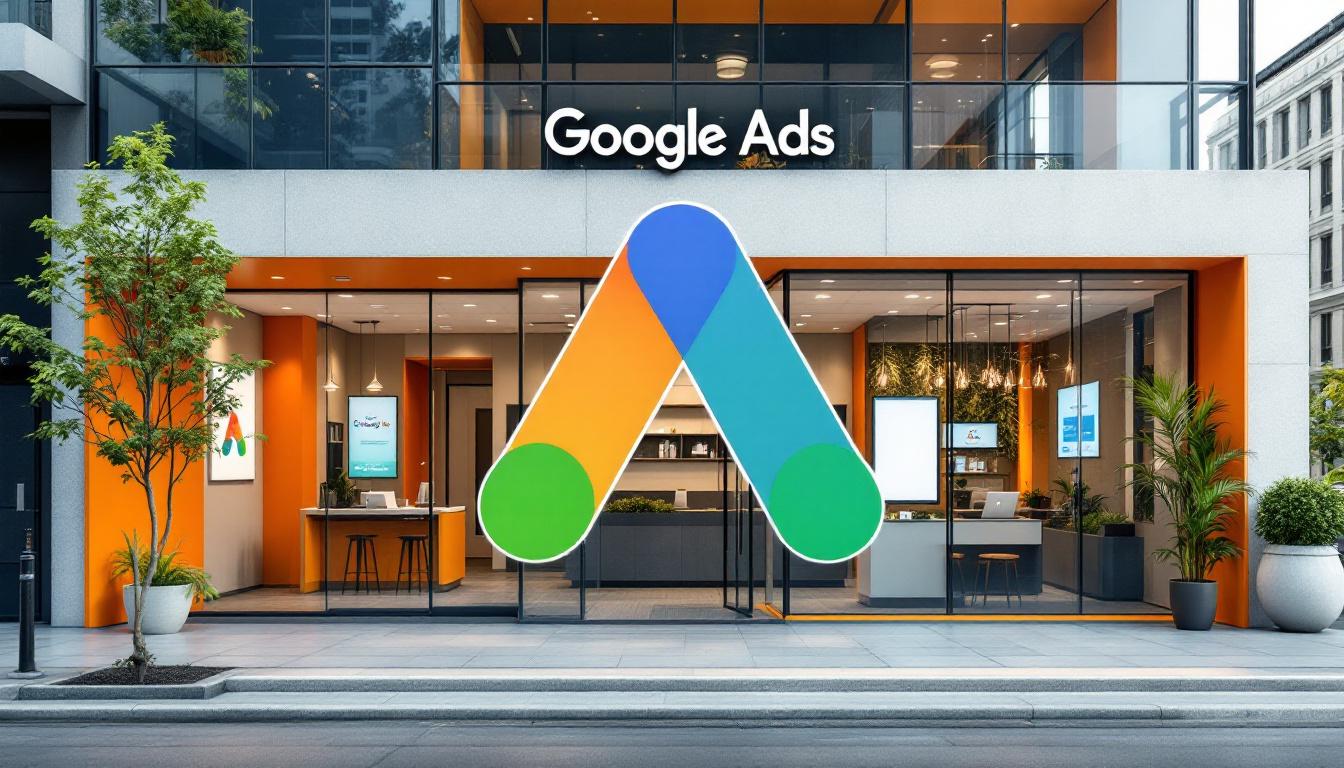Enhancing Online Visibility for Psychology Clinics Through SEO
Boosting Practice Reach: Strategic SEO for Mental Health Services


Enhancing Online Visibility for Psychology Clinics Through SEO
The Importance of SEO in Growing Psychology Practices
In today’s digital age, having a robust online presence is essential for psychology clinics and therapists seeking to attract new patients and grow their practices. Search Engine Optimization (SEO) offers a cost-effective, long-term marketing strategy that enhances online visibility, improves search engine rankings, and connects practitioners with individuals actively searching for mental health services.
Fundamentals of SEO for Mental Health Practices

What are the core elements of SEO that mental health and therapy practices need to understand?
Search Engine Optimization (SEO) for mental health practices involves several foundational components. First, keyword research is crucial; it helps identify the terms potential patients are searching for, such as "therapy near me," "counseling for anxiety," or "mental health support." This process guides the creation of targeted content and optimization efforts.
On-page SEO involves optimizing individual website elements, including page titles, meta descriptions, header tags, and the content itself. These elements should incorporate relevant keywords naturally to improve visibility in search results.
Technical SEO focuses on the website's backend aspects, such as improving site speed, ensuring mobile-friendliness, implementing SSL (secure sockets layer), and making the site accessible. These factors not only enhance user experience but also influence search engine rankings.
Off-page strategies involve activities outside the website, primarily building backlinks from reputable sources, engaging on social media, and listing the practice in relevant directories. These efforts increase the site's authority and credibility.
Finally, local SEO is vital for practices aiming to attract nearby clients. It includes optimizing Google My Business profiles, managing NAP (Name, Address, Phone number) consistency across platforms, collecting positive reviews, and using local keywords.
In essence, a successful SEO strategy integrates all these aspects to improve online visibility, attract targeted traffic, and convert visitors into clients.
Why is optimizing website structure, page titles, meta descriptions, header tags, and content so important?
Optimizing the website structure ensures that search engines and visitors can easily navigate and understand the site. Clear, logical navigation improves user experience and helps search engines crawl the site efficiently.
Page titles and meta descriptions serve as the first impression in search engine results pages (SERPs). Crafting compelling titles with relevant keywords can boost click-through rates. Meta descriptions that accurately summarize the page content and include targeted keywords encourage more visitors to click.
Header tags (H1, H2, H3, etc.) organize content logically, making it easier for search engines to understand the main topics of each page. Proper use of header tags also improves readability for visitors.
Creating high-quality, keyword-rich content addresses potential clients’ questions and demonstrates expertise. Regularly updating blogs, FAQs, and resource pages can improve search rankings, engage visitors, and enhance authority.
Overall, thoughtful optimization of these elements ensures that the website ranks higher in relevant searches, reaches the right audience, and provides visitors with engaging, accessible information.
The Role of Content in Enhancing Search Rankings

How does SEO support practice growth and patient acquisition in mental health services?
Search Engine Optimization (SEO) plays a vital role in expanding a therapy practice’s reach and attracting new patients. By optimizing the online presence, mental health professionals can improve their websites’ search engine rankings, making it easier for potential clients to find their services when they search for mental health support.
One of the primary ways SEO contributes to growth is through local SEO strategies. These include optimizing Google My Business profiles, using location-specific keywords, and maintaining consistent business information across various online directories. Such techniques help practices appear prominently in local search results, encouraging nearby patients to connect.
Creating a user-friendly website with relevant, high-quality content builds trust and demonstrates expertise. Engaging patients through blogs, FAQs, videos, and downloadable resources not only provides value but also helps address common concerns and questions. This content elevates the practice's authority and encourages visitors to become long-term clients.
Furthermore, positive online reviews and active management of a practice’s online reputation boost credibility and influence decision-making.
Consistent SEO efforts, including keyword optimization, technical site improvements, and content updates, help maintain high visibility in search results. Monitoring these strategies with tools like Google Analytics and Search Console ensures continuous improvement.
Ultimately, SEO acts as a cost-effective, sustainable marketing tool that supports steady practice growth. It helps attract qualified leads, converts website visitors into booked appointments, and builds a strong foundation for long-term success in a competitive healthcare environment.
Local SEO Strategies for Psychology Clinics

How can local SEO enhance the visibility of mental health practices in local search results?
Local SEO plays a crucial role in increasing the online presence of psychology clinics within their geographical communities. By focusing on location-specific strategies, practices can appear more prominently when potential patients search for mental health services nearby.
One effective method is to optimize the website with local keywords. This includes integrating city names, neighborhood terms, and service-specific phrases into page titles, meta descriptions, headers, and throughout the website content. Such targeted keywords, like ‘therapist in Downtown Chicago’ or ‘counseling services near Brooklyn,’ help search engines associate the practice with specific locations.
Creating and maintaining a Google My Business (GMB) profile is vital. A well-optimized GMB listing includes accurate Name, Address, Phone number (NAP), along with engaging photos of the office, staff, and community events. Regularly updating the profile with posts about upcoming workshops, new services, or community news enhances visibility in Google Maps and local search results.
Collecting and responding to reviews also significantly impacts local SEO. Encouraging satisfied clients to leave positive reviews builds credibility and trust. Responding professionally to these reviews shows engagement and care, which search engines interpret as a sign of an active, reputable practice.
Building local citations—mentions of the practice’s NAP across various online directories and community sites—further boosts local search rankings. Listings on platforms like Yelp, Healthgrades, Psychology Today, and local healthcare networks validate the practice's legitimacy and relevance.
Finally, sharing localized content, such as blog posts about community mental health initiatives or guides tailored to local issues, signals relevance to the community and search algorithms alike.
Implementing these strategies can dramatically improve a mental health practice's discoverability, making it easier for new clients to find and trust their services in their local area.
Technical SEO for Psychological Practice Websites

What practical steps can mental health practices take to optimize their websites for search engines?
Optimizing a website for search engines involves a multifaceted approach focused on improving technical aspects and content quality. First, extensive keyword research is vital. Practices should target both broad and long-tail keywords relevant to their services, such as "therapy near me" or "anxiety counseling in [location]." Using tools like Google Keyword Planner and Ahrefs can help identify these terms.
Creating well-structured, high-quality content is equally important. Blogs, FAQs, and service pages should contain relevant keywords naturally woven into engaging, informative text. Incorporating multimedia elements like images and videos not only caters to diverse user preferences but also improves SEO rankings.
Technical SEO enhancements underpin all content efforts. Fast website speeds are critical; practices should optimize images, leverage browser caching, and minimize code to reduce load times. Mobile responsiveness is non-negotiable, as most users browse via smartphones. Ensuring the site design adjusts seamlessly across devices, with simplified navigation and touch-friendly elements, enhances user experience.
Securing the website with HTTPS encrypts data, building trust and adhering to Google’s security standards. Accessibility standards, such as proper alt texts for images and keyboard-friendly navigation, ensure the site is usable for all visitors.
Local SEO tactics are essential since most clients search for nearby therapists. This includes claiming and optimizing a Google My Business profile with accurate NAP (Name, Address, Phone Number) information, adding local keywords, and maintaining consistent citations across directories like Psychology Today and Yelp.
Backlink building from reputable sites, such as health directories and community partners, boosts domain authority and search ranking. Encouraging satisfied clients to leave positive reviews on Google and other review platforms further enhances credibility.
Finally, content promotion through social media channels amplifies reach and engagement. Sharing blogs, videos, and success stories encourages sharing and increases inbound links.
These combined strategies form a comprehensive blueprint for improving search engine visibility and ensuring accessibility for potential clients.
| Optimization Area | Practical Strategies | Additional Details |
|---|---|---|
| Speed Optimization | Compress images, leverage caching, minimize code | Use tools like GTmetrix, Google PageSpeed Insights |
| Mobile Responsiveness | Responsive design, simplified navigation | Test with Google’s Mobile-Friendly Test |
| Security & Accessibility | HTTPS, alt texts, keyboard navigation | Implement SSL certificates, follow WCAG guidelines |
| Site Architecture | Clear menus, internal linking | Improve crawlability and user flow |
| Local SEO | Google My Business, local citations | Ensure NAP consistency, encourage reviews |
| Content Development | Quality, keyword-rich blogs, multimedia | Address common client questions and local issues |
| Backlink Building | Reputable directories, partnerships | Focus on relevant, authoritative sites |
| Content Promotion | Social media sharing, client testimonials | Use platforms like Facebook, Instagram, TikTok |
By systematically implementing these steps, mental health practices can significantly enhance their website’s search engine performance, attract more local clients, and build a strong online presence.
Off-Page SEO and Social Media Engagement

What strategies can help therapy practices build backlinks from reputable health and community sites?
Backlinks from trusted health and community websites are crucial for increasing your practice's domain authority and search engine ranking. To attain these, therapists should engage in guest blogging on reputable health, wellness, and local community platforms. Collaboration with other healthcare providers, such as psychiatrists or wellness coaches, can lead to mutual backlink opportunities.
Participating in community forums, local online directories like Google My Business, Psychology Today, and Yelp, and industry-specific sites also offers valuable linking opportunities. Creating high-quality, shareable content—such as comprehensive guides, case studies, or mental health resources—encourages other sites to reference and link to your practice.
Additionally, sponsoring local events or charities and having the organizations list your practice on their websites can generate authoritative backlinks. Building genuine relationships within the mental health community and maintaining active engagement on these platforms help establish your practice’s credibility and improve your SEO rankings.
How can therapy practices optimize their presence on social media platforms?
Engaging actively on social media platforms like Facebook, Instagram, TikTok, and LinkedIn enhances a practice’s visibility and humanizes the brand. Consistent posting of relevant content—such as mental health tips, success stories, and upcoming events—keeps your audience engaged.
Using relevant hashtags, keywords, and geo-tags increases discoverability. For example, including location-specific keywords like "counseling near me" or "NYC therapist" helps local users find your practice more easily.
Profiles should be fully optimized with clear descriptions, contact information, and links to your website. Sharing blog articles or videos from your site can drive traffic directly. Engaging with followers through comments, Q&A sessions, and testimonials boosts credibility and builds community trust.
Social media also plays a role in reputation management. Promptly responding to reviews and comments demonstrates excellent client care and encourages positive online feedback. Moreover, sharing client testimonials and success stories—when permitted—can significantly boost your practice’s credibility and attract new clients.
How does sharing client testimonials and success stories contribute to SEO?
Client testimonials and success stories serve as powerful content that amplifies credibility and builds trust with potential clients. When shared on your website and social media, these stories increase engagement and time spent on site, signaling value to search engines.
Incorporating keywords related to mental health challenges and treatment success in testimonials enhances their SEO impact. For instance, a story about overcoming anxiety that includes keywords like “anxiety treatment” and “stress management” can improve your site’s relevance for those searches.
Positive reviews and testimonials also influence local SEO. Google uses review signals extensively; more positive reviews can improve your Practice’s ranking in local search results and in the Google Local Pack.
Encouraging satisfied clients to leave reviews on Google, Yelp, and health-focused directories increases your online reputation, trustworthiness, and visibility.
How do specific SEO tools and techniques support mental health practices?
Tools like Google Keyword Planner, SEMrush, Ahrefs, Moz, and Ubersuggest are essential for tailoring SEO strategies in mental health. They help identify relevant keywords, analyze competitors, and track rankings. Using these tools, practices can discover targeted long-tail keywords such as 'affordable therapy near me' or 'cognitive behavioral therapy for depression' which attract qualified traffic.
Optimizing Google My Business profiles with accurate NAP (Name, Address, Phone number), photos, and regularly updated posts boosts local visibility. Creating dedicated service pages that target specific symptoms or concerns—like 'anxiety counseling for teens'—improves keyword targeting.
Building backlinks from reputable directories and community sites through outreach and guest posting enhances domain authority. Ensuring the website is technically optimized—for fast loading, mobile-friendly, and accessible—enables better user experience and search engine ranking.
Monitoring these efforts with Google Search Console and analytics tools provides insights for ongoing refinement, ensuring therapies reach the right audience.
Additional Resources
For further insights, search queries like 'Link building strategies for therapy,' 'social media SEO for mental health,' and 'online reputation management' offer comprehensive guides and case studies to enhance your practice’s digital marketing efforts.
| Strategy | Focus Area | Benefits |
|---|---|---|
| Backlink Building | Content collaborations, directories | Authority, higher ranking, credibility |
| Social Media Optimization | Consistent posting, engagement, branding | Increased visibility, client trust, engagement |
| Testimonials and Reviews | Display on website/social platforms | Trust, credibility, local SEO boost |
| SEO Tools and Techniques | Keyword research, analytics, technical SEO | Targeted traffic, improved rankings, strategy evolution |
| Local SEO Practices | GMB optimization, NAP consistency | Local visibility, more nearby clients |
Staying current with SEO trends and continuously assessing strategy effectiveness will help your mental health practice establish a prominent online presence, attracting more clients and fostering trust within your community.
Monitoring and Maintaining SEO Effectiveness

How does SEO support practice growth and patient acquisition in mental health services?
SEO plays a vital role in expanding a therapy practice’s reach and attracting new patients. By increasing the practice’s online visibility through targeted strategies, it becomes easier for potential clients to find the services they need.
One of the primary ways SEO helps grow a practice is through local SEO optimization. Claiming and optimizing your Google My Business profile, including accurate business details, photos, and encouraging reviews, makes your practice more visible to local searchers. When potential patients search for mental health services nearby, a well-optimized local presence ensures your practice appears higher in search results.
Targeted keyword implementation is also crucial. Using relevant keywords, especially long-tail and geo-specific terms like
The Long-Term Benefits of Persistent SEO Efforts

Why are ongoing SEO efforts essential for sustainable visibility?
Search Engine Optimization isn’t a one-and-done project. For therapy practices aiming to attract continuous new patients, maintaining a high search engine ranking requires consistent effort. SEO is an evolving process that needs regular updates and refinements to stay relevant in competitive markets.
Regularly updating website content, optimizing existing pages, and maintaining local listings ensure the practice remains visible to prospective patients actively searching for mental health services. Keeping the website technically sound — from fast load times to mobile responsiveness — encourages visitors to stay longer and reduces bounce rates, positively influencing search rankings.
Moreover, search engine algorithms constantly change, with Google frequently updating its ranking criteria to prioritize user experience, relevance, and authority. Practices investing in ongoing SEO update their strategies to comply with these changes, ensuring their websites do not fall behind competitors.
How can adaptation to SEO trends and algorithm updates improve online presence?
Staying current with SEO trends involves following industry blogs, participating in webinars, and engaging with digital marketing communities. For instance, understanding updates related to mobile-first indexing, voice search, and AI-driven algorithms helps practices tweak their strategies accordingly.
Tools such as Google Search Console and Google Analytics provide valuable insights into how the website performs. Monitoring keyword rankings, traffic, and user engagement figures allows practices to identify which strategies work best and which require adjustment.
Implementing structured data markup, optimizing for featured snippets, and leveraging new content formats like videos or podcasts are all ways to adapt and thrive amid algorithm changes.
Why should practices invest in reputation management and content updates?
Online reviews and patient testimonials significantly influence local SEO and credibility. Encouraging satisfied clients to share positive reviews on platforms like Google My Business and Yelp enhances local search visibility and builds trust.
Managing these reviews effectively, responding professionally and promptly to feedback, supports reputation growth. A robust online reputation also improves click-through rates from search engine results.
Additionally, updating the website with fresh, high-quality content—blog posts, FAQ sections, videos, and downloadable guides—demonstrates expertise and relevance. Regularly refreshed content helps target new keywords, answer common patient questions, and establish the practice as a trustworthy authority.
This continuous content cycle, combined with reputation management, creates a cycle of ongoing visibility and engagement, ensuring the practice remains competitive long-term.
| Aspect | Importance | Strategies |
|---|---|---|
| Content Updates | Keeps site relevant and authoritative | Regular blog posts, patient success stories, educational videos |
| Reputation and Reviews | Builds trust and improves local SEO | Encourage reviews, respond professionally, showcase testimonials |
| Algorithm Adaptation | Maintains search rankings amid updates | Follow industry news, update technical SEO, optimize for new search trends |
| Technical SEO Maintenance | Ensures site accessibility and indexability | Monitor site speed, fix broken links, mobile optimization |
| Keyword Optimization | Continually attracts targeted traffic | Conduct regular keyword research, refresh on-page SEO elements |
How do long-term SEO strategies benefit psychology clinics and therapists?
Implementing a sustained SEO plan leads to steady growth in website traffic, higher conversion rates, and a broader reach to local communities. As the practice earns more visibility, it builds trust and authority, making it the go-to choice for potential patients.
Research shows that over 70% of individuals search online for mental health resources, emphasizing the importance of staying visible in search results. Consistent SEO efforts ensure that a practice remains consistently accessible at the top when prospective clients are searching.
Furthermore, long-term SEO offers a cost-effective alternative to paid advertising by organically attracting visitors without ongoing ad spend. While initial efforts may require investment, the benefits accumulate over years, offering continued return on investment.
Effective long-term strategies require patience and persistence but ultimately empower therapists to grow sustainably in an increasingly digital world.
| Benefit | Description | Approach |
|---|---|---|
| Increased Visibility | More patients find the practice online | Continuous content growth, local SEO optimization |
| Credibility and Trust | Higher search rankings boost professional image | Collect reviews, showcase testimonials, and earn backlinks |
| Cost-Effectiveness | Organic growth reduces advertising costs | Focus on technical SEO, content strategy, and backlinks |
| Competitive Edge | Staying ahead of competitors with adaptive SEO | Regular trend monitoring, algorithm updates, and content refinement |
| Practice Growth | Sustained patient influx over time | Consistent engagement, local outreach, and reputation management |
Final thoughts
For therapy practices and mental health clinics, SEO is a long-term investment in visibility and growth. Ensuring ongoing efforts—through content updates, reputation management, and regular technical SEO improvements—can sustain high rankings and attract new patients.
Staying adaptive to search engine trends and algorithm updates helps maintain relevance. By continuously refining strategies, clinics can enjoy the numerous benefits of top search engine rankings, including higher credibility, increased trust, and sustained growth. Persistent SEO is not just about immediate results; it’s about building a resilient online presence that endures through the changing digital landscape.
Sustaining Success Through Consistent SEO Practices
In conclusion, enhancing online visibility for psychology clinics and therapists through strategic SEO involves a synergistic use of content marketing, technical optimization, local search tactics, and ongoing performance monitoring. Employing proven tools and best practices tailored to the mental health field ensures your practice remains accessible to individuals seeking help. By investing continually in SEO efforts—updating content, optimizing technical aspects, and fostering a positive online reputation—practitioners can secure sustained growth, attract more clients, and establish a reputable digital presence in a competitive landscape.
References
- SEO for Therapists: Tips to Boost Online Visibility and Grow Their ...
- SEO tips for therapists: how to optimize your website for ... - Healthie
- 7 SEO Tips for Optimizing Your Psychologist Website - Brighter Vision
- SEO for Mental Health Professionals and Social Media
- SEO for Therapists: The Ultimate Guide - Talkspace
- How to Boost Your Mental Health Clinic's Online Visibility with ...
- SEO Techniques for Mental Health Providers - BloomHouse Marketing
- Effective SEO for Therapists: Boosting Your Online Visibility
- How to Use Content Marketing and SEO to Grow Your Therapy ...
- SEO for Therapists: 10 Steps to Rank Higher and Get More Patients







